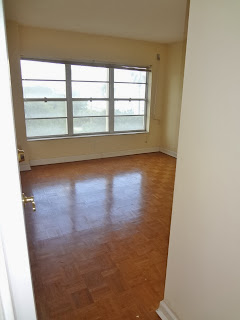However, I recently attended a meeting where I learned about many wonderful services our local Hospice offers for those who have been diagnosed with a terminal/life-threatening illness. In some cases, Hospice services can span several years, in addition to the end of life comfort and care they are known for.
A new term Palliative Care was also discussed. Palliative Care? What's that? It's a tough word to pronounce, what with all the "ll's" and double vowels!
The World Health Organization defines Palliative Care as:
An approach that improves the quality of life of patients and their families facing the problem associated with life-threatening illness, through the prevention and relief of suffering by means of early identification and impeccable assessment and treatment of pain and other problems, physical, psychosocial and spiritual. Palliative care:
- provides relief from pain and other distressing symptoms;
- affirms life and regards dying as a normal process;
- intends neither to hasten or postpone death;
- integrates the psychological and spiritual aspects of patient care;
- offers a support system to help patients live as actively as possible until death;
- offers a support system to help the family cope during the patients illness and in their own bereavement;
- uses a team approach to address the needs of patients and their families, including bereavement counselling, if indicated;
- will enhance quality of life, and may also positively influence the course of illness;
- is applicable early in the course of illness, in conjunction with other therapies that are intended to prolong life, such as chemotherapy or radiation therapy, and includes those investigations needed to better understand and manage distressing clinical complications.
In short, Palliative Care = Comfort Care.
Integrative (Complementary) Medicine was introduced. Here's the WHO definition of Traditional and Complementary Medicine:
* Traditional medicine
Traditional medicine is the sum total of the knowledge, skills, and practices based on the theories, beliefs, and experiences indigenous to different cultures, whether explicable or not, used in the maintenance of health as well as in the prevention, diagnosis, improvement or treatment of physical and mental illness.
* Complementary/alternative medicine (CAM)
The terms "complementary medicine" or "alternative medicine" are used inter-changeably with traditional medicine in some countries. They refer to a broad set of health care practices that are not part of that country's own tradition and are not integrated into the dominant health care system.
IM/CAM combines a variety of complementary principles and practices with conventional medicine. It employs the best of all medical modalities, focusing on mind, body, spirit and emotions. Integrative Medicine treats the whole person and reaffirms the practitioner-patient relationship and caring presence. Such methods include:
* Acupuncture * Aromatherapy * Biofeedback * Cupping
* Energy Medicine (Therapeutic Touch, Healing Touch & Reiki, Trigger Point Therapy, Conscious Breathwork, Guided Imagery, Mind/Body Practices for Relaxation)
The speakers told several patient success stories, not that the person was cured of their illness, but that they experienced less pain and were able to enjoy their time to the fullest.
A Reiki Master shared what she does to help patients that she sees in the clinic or their homes and also told us about The Five Reiki Principles:
Perhaps with more education, people's perceptions of Hospice will change, and the care and services each organization offers will be welcomed sooner.
For more information on how A Stress-Less Transition, LLC can help you or an older adult, please visit our website.























.JPG)










